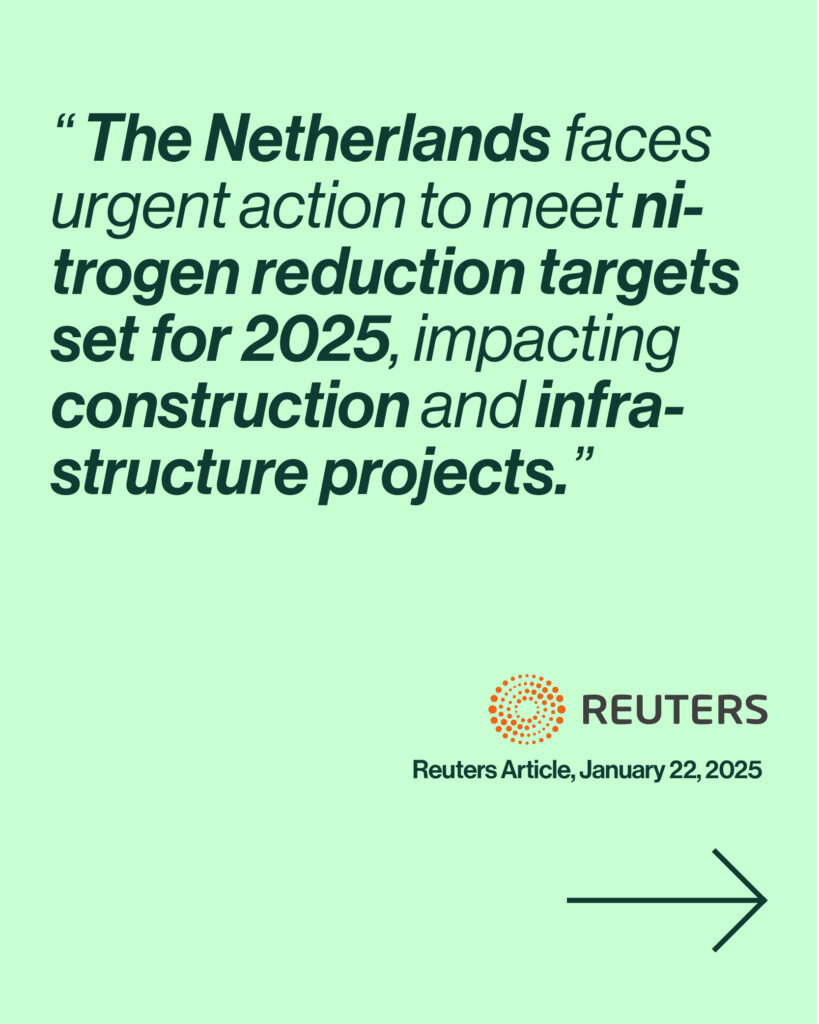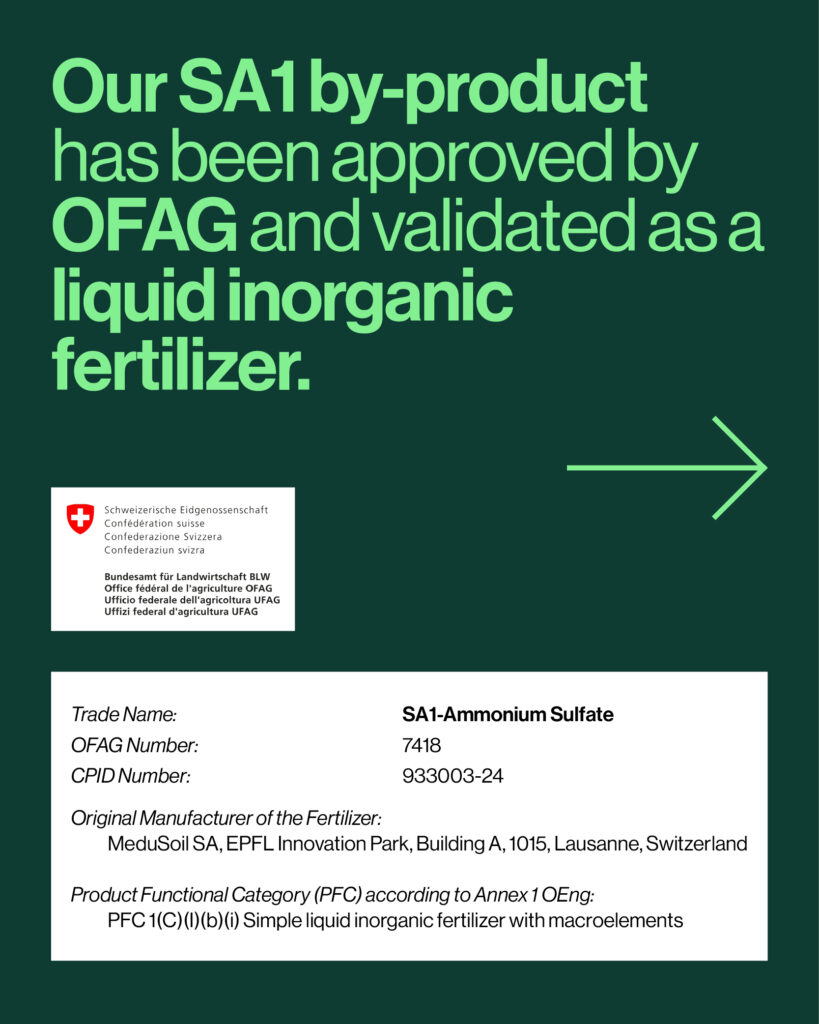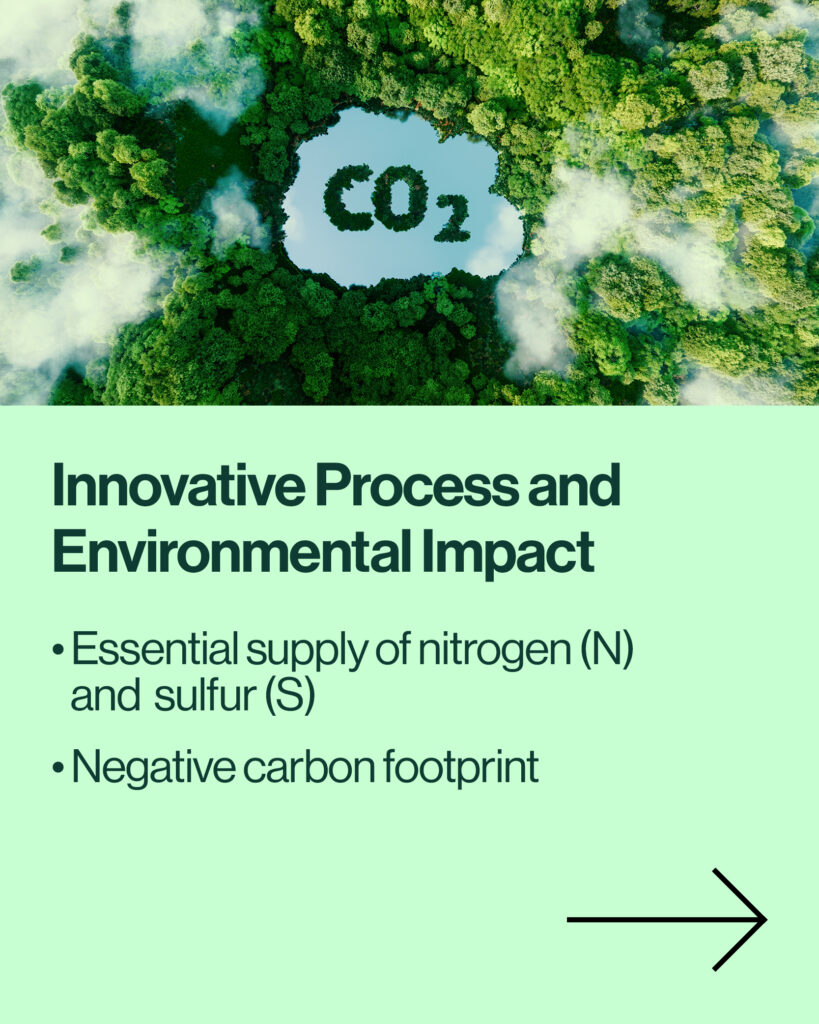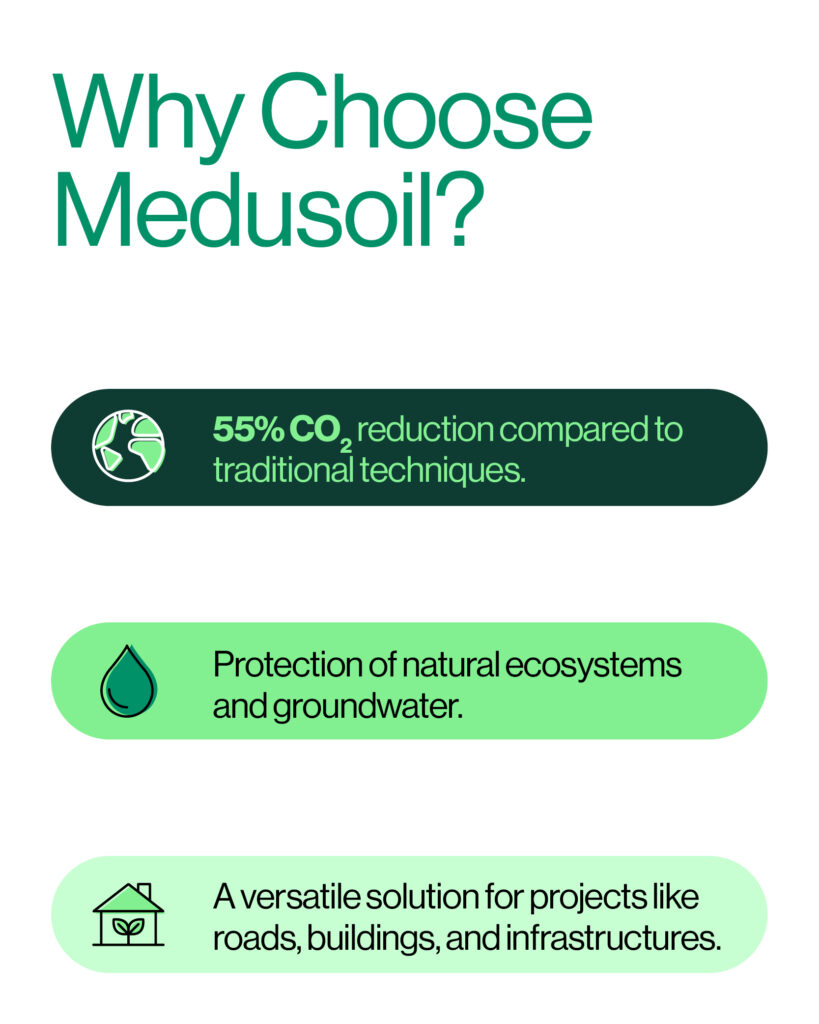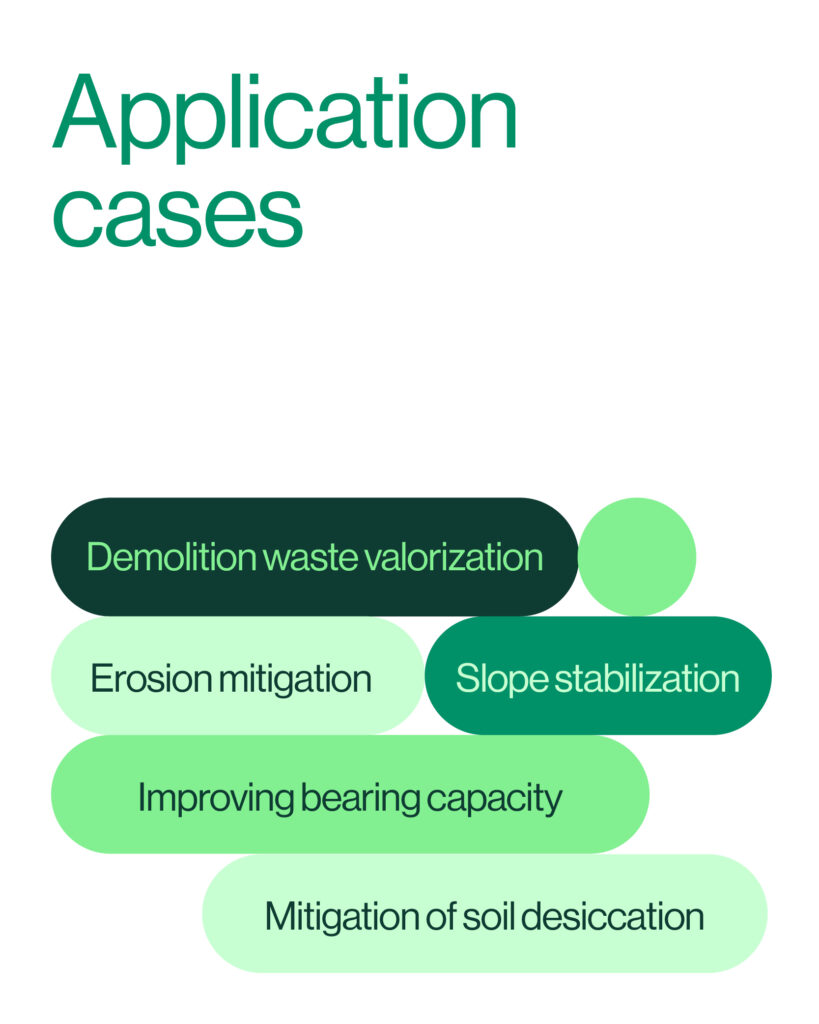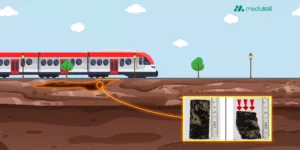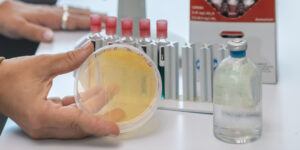At Medusoil, we have always believed in an innovative and sustainable approach to tackling environmental challenges. Today, we take a significant step forward with the official certification of our circular model by the Swiss Federal Office for Agriculture (FOAG). This recognition validates our biotechnological solution, which transforms industrial waste into a certified resource, benefiting both the construction and agriculture sectors.
From Biocementation to Low-Carbon Fertilizer: A Dual Innovation
Innovation is at the core of what we do. Over the years, we have developed solutions based on biocementation, a process inspired by natural biological mechanisms that reinforces soils and repurposes demolition waste. This technology has opened a new path in agritech by creating a dual-impact product:
✅ Soil and construction waste reinforcement for more resilient infrastructure.
✅ Transformation of these waste materials into a certified fertilizer, reducing reliance on fossil-based inputs.
A Circular, Carbon-Negative Fertilizer
Our solution has resulted in a certified, circular byproduct: a recycled ammonium sulfate fertilizer. Unlike conventional fertilizers, which rely on energy-intensive production methods, this one has a carbon footprint of –0.35 kg CO₂ per kg produced.
💡 Why is this a major breakthrough?
It replaces traditional fossil-based inputs, significantly lowering greenhouse gas emissions.
It provides a high-performance alternative for farmers while aligning with climate goals.
It fully integrates into a circular economy, making use of existing resources rather than extracting new ones.
With over 15,000 kg already distributed, our fertilizer is proving its efficiency in the field and offering a tangible solution to agriculture’s decarbonization.
Towards a Regenerative Economy: A Commitment to the Future
The certification of our circular model by the FOAG marks an official recognition of the potential of our solutions for ecological transition. At Medusoil, we firmly believe that the future of industry lies in resource optimization, waste valorization, and the adoption of low-carbon technologies.
By bridging the construction and agriculture sectors through biotechnological innovation, we are laying the foundation for a regenerative economy, where nothing is wasted, and everything is transformed.



